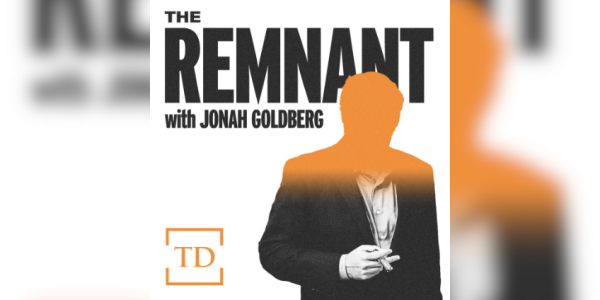Happy Tuesday! What better way to start the day than reading an 8,000-word research paper from MIT engineers on how best to twist apart Oreos. “For me this all started as a personal question,” Crystal Owens told The Wall Street Journal. “But I guess everyone else was also thinking like, ‘Oh, let’s understand my Oreos better.’”
Quick Hits: Today’s Top Stories
- Six people were killed—three 9-year-old children and three adults—when a 28-year-old transgender person opened fire at a private Christian elementary school in Nashville on Monday. The shooter, reportedly armed with two assault-style rifles and a pistol, was killed by police minutes after they arrived on the scene. John Drake, chief of the Metro Nashville Police Department, said the shooter is believed to have once been a student at the school, but any motive is not yet clear.
- Facing mass protests, strikes, and criticism from members of his own government, Israeli Prime Minister Benjamin Netanyahu announced Monday he would pause his controversial push to overhaul the country’s judicial system. “Out of national responsibility, from a desire to prevent the nation from being torn apart, I am calling to suspend the legislation,” he said. “When there is a possibility to prevent a civil war through negotiations, I will give a timeout for negotiations.”
- The Federal Deposit Insurance Corporation (FDIC) announced late Sunday night First Citizens Bank had agreed to purchase large portions of what was formerly Silicon Valley Bank, acquiring about $72 billion of SVB’s assets—including deposits, loans, and branches—at a discount of $16.5 billion. Approximately $90 billion worth of securities will remain in FDIC receivership, and the agency estimated the episode’s total cost to the Deposit Insurance Fund to be about $20 billion.
- President Joe Biden signed an executive order on Monday restricting the use of commercial spyware by the federal government, arguing it’s in the United States’ “fundamental national security and foreign policy interest” to stop the proliferation of the software, which has been used to hack and surveil mobile phones. At least 50 U.S. government officials have been targeted with such commercial spyware in recent years, according to the White House.
- North Carolina on Monday became the 40th state to expand Medicaid coverage under the Affordable Care Act, with Democratic Gov. Roy Cooper signing into law legislation passed by North Carolina’s Republican-controlled legislature after years of opposition. “Now we have a Medicaid system that is stable,” Republican State Sen. Phil Berger said. “By transforming our state’s Medicaid program, we’re now in a place where our system can handle those additional enrollees.”
- Democratic Rep. Ro Khanna of California announced Sunday he won’t run for the U.S. Senate seat being vacated by Sen. Dianne Feinstein next year, opting instead to run for reelection in the House. He told CNN’s Jake Tapper he is endorsing Rep. Barbara Lee in the race instead.
- President Biden’s pick to run the Federal Aviation Administration, Phil Washington, withdrew his nomination to run the agency over the weekend after Sen. Kyrsten Sinema of Arizona joined Republicans in expressing skepticism about the Denver International Airport CEO’s qualifications. Acting FAA Administrator Billy Nolen—a former airline pilot—is emerging as a likely replacement, favored by both Republicans and industry leaders alike.
- Cecilia Rouse, chair of Biden’s Council of Economic Advisers, told Bloomberg over the weekend she will leave her post on Friday, at which point Jared Bernstein—Biden’s former chief economist as vice president—will assume the role.

As fans of Les Misérables know well, the French have something of a history with kings. Perhaps with an eye toward forestalling any unsavory parallels, French President Emmanuel Macron decided to postpone British King Charles III’s visit to France—the first state visit of the new king’s reign—that was set to begin Sunday. The optics of a gala banquet at the Palace of Versailles while protests raged outside were just too much. Plus, several buildings in Bordeaux—a southwestern city the King and Queen Consort Camilla were slated to visit—were on fire.
Regular TMD readers can guess what has set France ablaze, first figuratively and now literally: Macron’s ongoing effort to reform the country’s pension system by raising the retirement age for most workers from 62 to 64.
Worth Your Time
- In a thoughtful piece for Christianity Today, Paul Miller argues it’s a mistake for Americans to look to the government to sustain a Christian culture. “Supporting democracy is not the point of Christianity,” he writes. “It may be a happy side effect—after all, godliness ‘has value for all things, holding promise for both the present life and the life to come’ (1 Tim. 4:8)—and so it is entirely plausible that Christianity has positive, unintended consequences that makes sustaining democracy easier. But Jesus did not become incarnate to make possible the First Amendment or inspire the US Constitution. Civic virtue is essential to sustaining an open society. But civic virtue is not the same thing as Christian belief, and Christianity is not the only source of it. Again, Christianity is probably good for democracy—social scientists have argued that the Protestant emphasis on individual conscience, the priesthood of all believers, and universal literacy were contributing factors to the rise of democracy in the past two centuries. But God’s common grace allowed non-Christians (like pagan Greeks) to discover and practice the principles of political freedom long before we did.”
- We’re just 48 hours away from Major League Baseball’s Opening Day, but our minds are still reeling from the end of the World Baseball Classic a week ago. Ben Lindbergh’s, too. “The World Baseball Classic that concluded on Tuesday night can’t be topped by mere Major League Baseball,” he argues for The Ringer. “We savored an environment so raucous and intense that even buttoned-up baseballers who don’t normally play loud amped themselves up to match the emotions of their foes and fans. And all of the thrilling throat-clearing culminated in what almost seemed like scripted rising action, which ushered us from an incredible quarterfinal between Team USA and Venezuela, to an exquisite semifinal between Mexico and Japan, to a tight USA-Japan final—maybe the most-watched baseball game ever. The appointment viewing climaxed, improbably and perfectly, with a special-effects confrontation from the closing minutes of a Phase 3 Marvel movie: Shohei Ohtani pumping triple-digit heat and a scale-breaking sweeper past sometime-teammate Mike Trout in a pulse-pounding passing of the GOAT torch. Baseball can’t possibly baseball better than that. We have seen sports nirvana, and all it took to top the preceding several millennia of athletic competition was a 20-team global baseball tournament played in mid-March.”
Presented Without Comment
Also Presented Without Comment
Toeing the Company Line
- In the newsletters: Kevin wonders whether (🔒) protecting the country from Donald Trump is a job for prosecutors, the Dispatch Politics team dives into the Chicago mayoral runoff and the efficacy of Trump’s attacks on Ron DeSantis, and Nick looks at (🔒) the two models of disruption available to GOP primary voters next year. “Republican voters crave disruption,” he writes. “But who is the candidate of disruption in 2024?
- On the podcasts: David and Sarah discuss the constitutionality of a TikTok ban and the latest in Trump’s alleged hush-money case.
- On the site today: Charlotte reports on the questions that still remain after Israeli Prime Minister Benjamin Netanyahu’s postponement of his controversial judicial reforms, Audrey has an early look at a familiar face considering another Senate run in Pennsylvania, and Eric Edelman and Franklin Miller explain what’s behind Russian President Vladimir Putin sending nuclear warheads to Belarus.












Please note that we at The Dispatch hold ourselves, our work, and our commenters to a higher standard than other places on the internet. We welcome comments that foster genuine debate or discussion—including comments critical of us or our work—but responses that include ad hominem attacks on fellow Dispatch members or are intended to stoke fear and anger may be moderated.
You are currently using a limited time guest pass and do not have access to commenting. Consider subscribing to join the conversation.
With your membership, you only have the ability to comment on The Morning Dispatch articles. Consider upgrading to join the conversation everywhere.